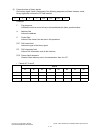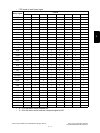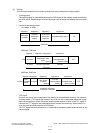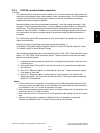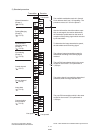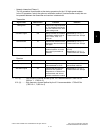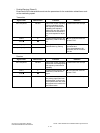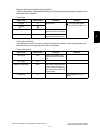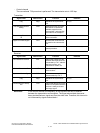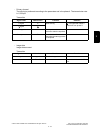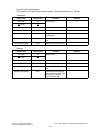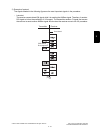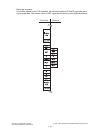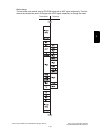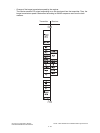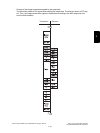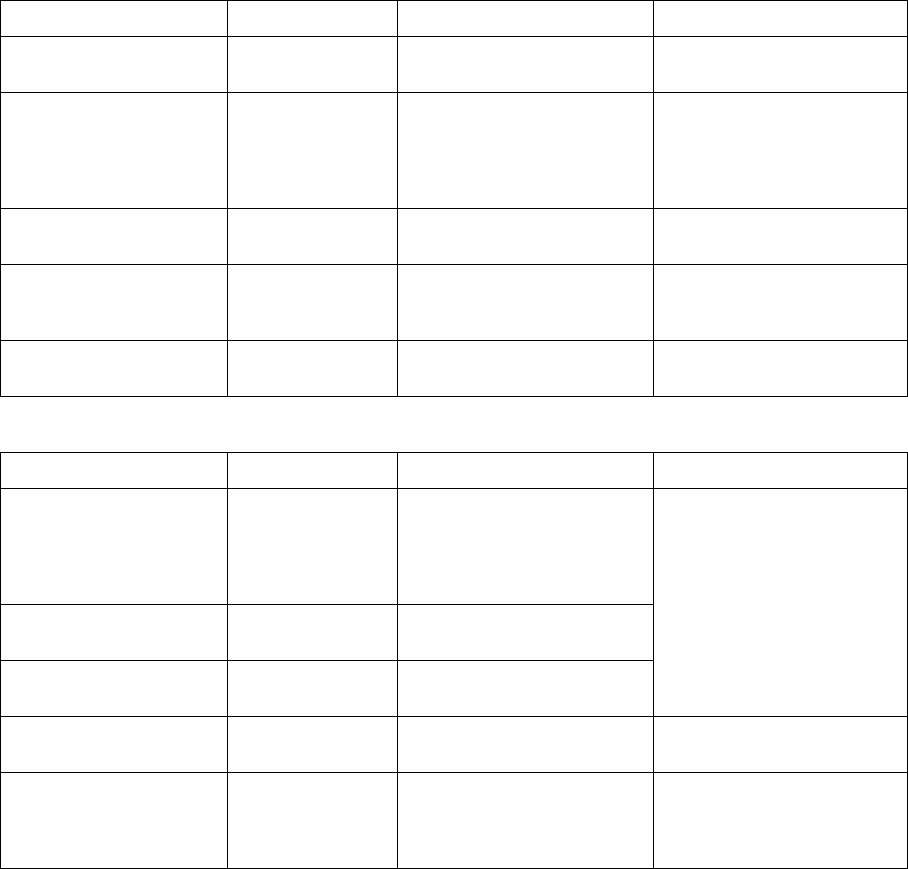
GD-1150/1151/1200/1201/1160/1260 © 2003 - 2008 TOSHIBA TEC CORPORATION All rights reserved
DIALING/COMMUNICATION CONTROL
3 - 18
- Control channel
The conventional T.30 procedure is performed. The transmission rate is 1200 bps.
Transmitter
Receiver
Reference: In the control channel, the frequency of the signals to be sent is different
between the transmission and reception. The signal echoed back has never
been misidentified as a signal sent from the other side. Therefore, this channel is
not influenced by signals echoed back.\
Signal name Abbreviation Function Remarks
Flag flags Maintains the synchroniza-
tion.
7E (H)
Non-standard facilities
setting
NSS Receives an NSF sent from
the receiver. It selects the
available mode from the
received NSF, and specifies
the mode for the reception.
Transmitting Subscriber
ID
TSI Informs the telephone number
of the transmitter.
Digital Command Signal DCS Specifies the mode that can
be used for the communica-
tion.
- 1 Declares to switch to the high-
speed procedure.
“1” is sent continuously.
Signal name Abbreviation Function Remarks
Non-Standard Facilities NSF Informs the presence of the
facilities other than those rec-
ommended by ITU-T, abbrevi-
ated user names, and
manufacturer codes, etc.
Called Subscriber ID CSI Informs the telephone number
of the receiver.
Digital Identification Signal DIS Informs the standard facilities
recommended by ITU-T.
Flag flags Maintains the synchroniza-
tion.
7E (H)
Confirmation for Recep-
tion
CFR Informs that the training of the
modem is completed, and the
receiver is ready to receive
the image signal.



